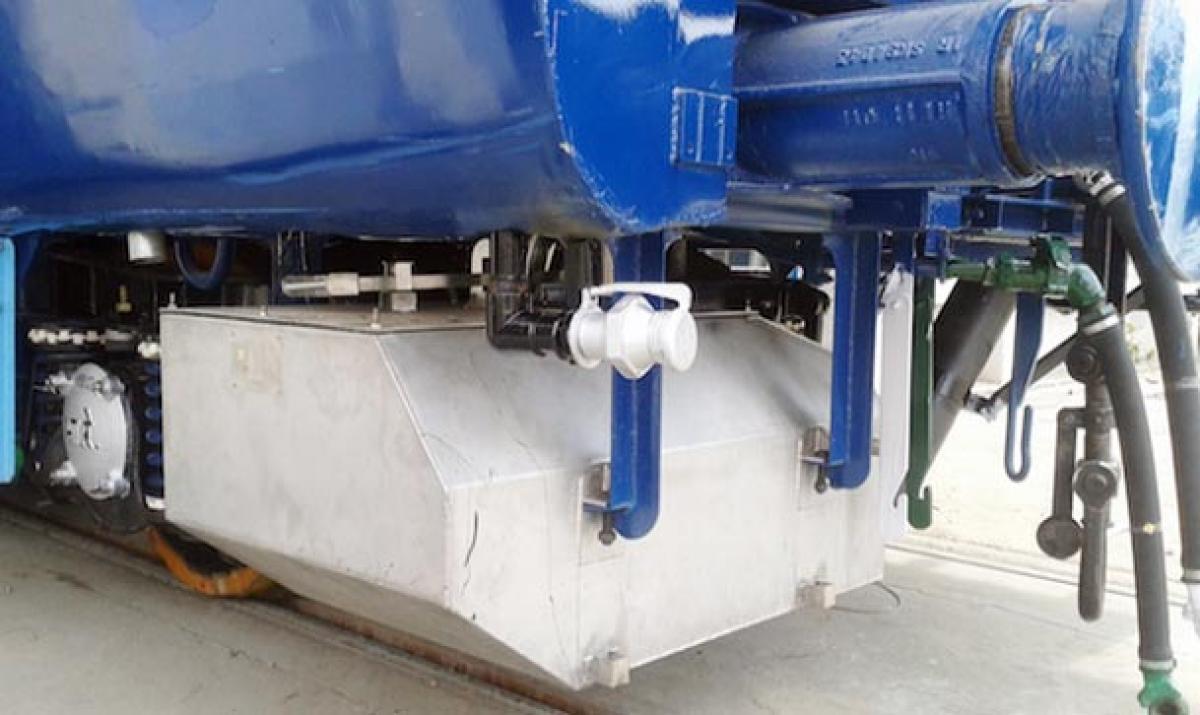Live
- Eatala dares CM to implement farm loan waiver without selling lands
- Vijayawada: AAG Ponnavolu condemns Sharmila’s remarks
- Malla Reddy to join BJP?
- Hyderabad: Saviour of special needs kids
- Mangalagiri: TDP NRIs vow to create 1 lakh jobs for youth
- Vijayawada: SAMARTH app useful to effectively monitor law & order issues, says CEO Mukesh Kumar Meena
- Cops bust smartphone smuggling racket, apprehend 17
- Pedal power: City cycling buffs want govt to promote sustainable mobility
- Guntur: Capital Amaravati construction will be speeded up says Nara Lokesh
- Nizam College showcases famed alumni
Just In

As part of the mission ‘Swachh Bharat Abhiyan,’ the Ministry of Railways has taken up a mammoth task of providing human discharge free bio-toilets in all its coaches and the same would be completed by September 2019.
India’s First Green Train Corridor, namely Rameswaram-Manamadurai (114 km) which is free from human waste discharge, is being launched from Chennai station on July 24 by Railway Minister Suresh Prabhakar Prabhu. launched on July 24. Accordingly, 10 passenger trains consisting of 286 coaches moving over this section have been provided with bio-toilets.
As part of the mission ‘Swachh Bharat Abhiyan,’ the Ministry of Railways has taken up a mammoth task of providing human discharge free bio-toilets in all its coaches and the same would be completed by September 2019.
With provision of bio-toilets in all its coaches discharge of human waste from trains on to the ground would be completely stopped which in turn would help in improving cleanliness and hygiene.
The Ministry of Railways has already provided 40,750 bio-toilets in its coaches till 30th June, 2016 and in the current financial year, it is planned to fit additional 30,000 bio-toilets. Porbandar-Wansjaliya (34 km) and Jammu-Katra (78 km) sections would also be taken up for making them free from human waste discharge from trains.
Bio-toilets eliminate open discharge of waste on the track as the waste is digested by specially developed bacteria and only small amount of clean water is discharged in the process. Railways has installed more than 20,000 bio-toilets in trains till now and has set a target to fit 17,000 more this fiscal. It costs about Rs 3.5 lakh to install four Zero Discharge Toilet Systems in a coach.
The prototype consists of a custom designed Vacuum toilet adapted from a commercially available vacuum toilet that is used in aircrafts which evacuates its discharge into a bio-digester tank which is now successfully proven in the bio-toilets of Indian Railways.
The bio-digester tank is fitted underneath the coach and contains anaerobic bacteria that convert human fecal matter into water and small amount of gases before discharging the same on the ground/track. Typically, a conventional toilet or Bio-toilet uses 10 to 15 litres of water per flush whereas the vacuum toilet consumes only 500 ml of water for flushing.
By transferring the discharge of the vacuum toilets into bio-digester, the need to create separate ground handling installation and creating additional sewer load on the Municipal Corporation will be done away with, observes the website http://www.urbannewsdigest.in/.

© 2024 Hyderabad Media House Limited/The Hans India. All rights reserved. Powered by hocalwire.com







